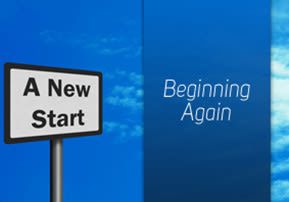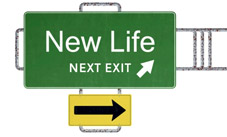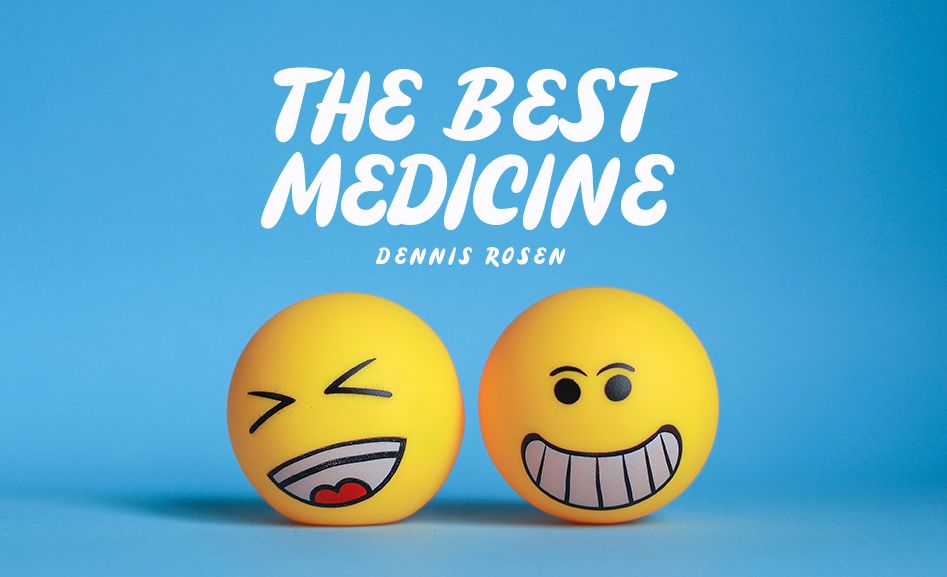
Beginning Again
On the verge of suicide, Gila musters up some latent emotional strength and decides to fight back with the one cogent weapon at her disposal…

When I wrote Ice Breaker several months ago, I believed I’d learned how to tame my tendency to depression, anxiety and despair. I assumed I’d figured out a winning way to wrestle down the yetzer hara (evil inclination) when it inevitably reared its ugly head.
The yetzer had a good joke on me.
Just when I thought life would take me and my family in one direction, it spun us around at a dizzying pace, shattering into metaphorical glass shards that pierced my soul. Yet again I found myself spending hours doing little but entertaining thoughts of despair, hopelessness, sadness and self-hate.
The fact that I knew the darkness could be dispelled with the light of Torah, hitbodedut (personal prayer) and self-love made me feel worse as I had given the yetzer hara the green light to anarchy.
One day, when I was in the kitchen chopping up something, I looked at the knife and held it in front of my belly, hands shaking, wondering what it would be like to plunge it inside. There was no way I would ever turn thought into action, but the fact that I even pretend-played shook me to the core. I’d sunk to such a low and I couldn’t stand it any longer. Something needed to change dramatically.
Hashem, in His loving kindness, sent me lifelines. I reached out to the people in my life who have had the greatest spiritual impact on me – embracing their support instead of keeping my distance because of my pain. I retrieved my Rabbi Lazer Brody shiur CDs from the back of a drawer and started to listen again. I re-opened my books Garden of the Souls: Rebbe Nachman on Suffering, by Avraham Greenbaum, and In Forest Fields, by Rabbis Shalom Arush.
 And I took to heart two simple words from Rebbe Nachman that a dear friend once wrote to me: Begin Again.
And I took to heart two simple words from Rebbe Nachman that a dear friend once wrote to me: Begin Again.
I made a firm decision; no way am I going back to life without an outstretched arm to HaKadosh Baruch Hu. Though I didn’t go off the derech in my most recent strife, I’d shut Hashem out to the point that I only let Him in when I quickly said blessings over my food or went through the motions of saying Shema at night – if I didn’t fall asleep before fumbling through the siddur. I ignored Hashem much of the time.
Things turned around in an instant when I decided to commit myself to the mother of all weapons: Emuna.
Rebbe Nachman teaches that the soul and emuna are one, and that emotional health corresponds to the level of a person’s emuna. Emotional disturbances, confusion and weakness simply result from a breakdown of emuna. “This is a rule of thumb for all mental illnesses,” says Rabbi Shalom Arush.
In his best-seller, life-changer book, The Garden of Emuna, Rabbi Arush shares a phenomenal concept that turns modern medicine on its head. He says that healing is dependent on a person repairing the spiritual cause of their ailment, for when that is achieved, the ailment disappears without any other intervention whatsoever. “If nature governed healing,” Arush challenges, “then the sick person should have continued to suffer despite whatever efforts at repenting that he or she made.”
Hashem is truly the physician of all flesh. There are many examples of people who, having been diagnosed with cancer or other life-threatening ills, fortified themselves with emuna and engaged in personal prayer for hours-long sessions. They had complete recoveries as a result. Have a look at some of the remarkable stories in the book by Rabbi Arush, The Garden of Gratitude.
When I was wallowing in the darkness, I was already taking anti-depressants. I was already going to therapy. Both ‘natural’ treatments have provided some relief; the medication quells physical anxiety symptoms and the therapy offers a nice opportunity to hear myself talk and get some positive reinforcement from my doctor. For $150 per hour. But the depression and anxiety have remained.
Rabbi Arush says that medicine and medical procedures can be effective only after one makes a concerted effort to assuage severe judgments against him or her, and appeals to Hashem for a cure. Without spiritual effort, turning to a doctor for help signals a lack of emuna.
When Rebbe Nachman’s own beloved daughter Sarah was ailing, he suggested that she picture herself as better off than before she fell sick. It was an impossible request for Sarah, whose pain gave her no peace. Still, the Rebbe asked her to follow his instructions. “The power of thought is very great,” he explained. “By thinking positively, you can actually turn your situation to the good.”
I started to carve out a half-hour a day at first for hitbodedut, soon upping the anty to an hour. I ask Hashem to help me speak to Him, and help me make sure I get that time each day. It is crucial for my fight against depression and anxiety. And I’ve come to accept – even embrace – the fact that these ‘dis-eases’ are for my very own good. The more a person has problems, says Rabbi Arush, the more he/she is likely to seek Hashem, as Hashem only wants us closer to Him.
What a love letter from Above! What we perceive as our deficiencies are not the case at all – they’re springboards for spiritual growth and soul correction.
This past Rosh Hashanah and Yom Kippur, I have done much atoning, asking forgiveness from my husband and children. But I asked the most forgiveness from Hashem, for the days I lost to despair and the thoughts I allowed to contemplate my own demise. I asked forgiveness for my futile attempts to play His role.
And I will thank Him for the opportunity He has granted me — repeatedly — to begin again. This week, with the joy of Succot – is a great time to start.







Tell us what you think!
Thank you for your comment!
It will be published after approval by the Editor.